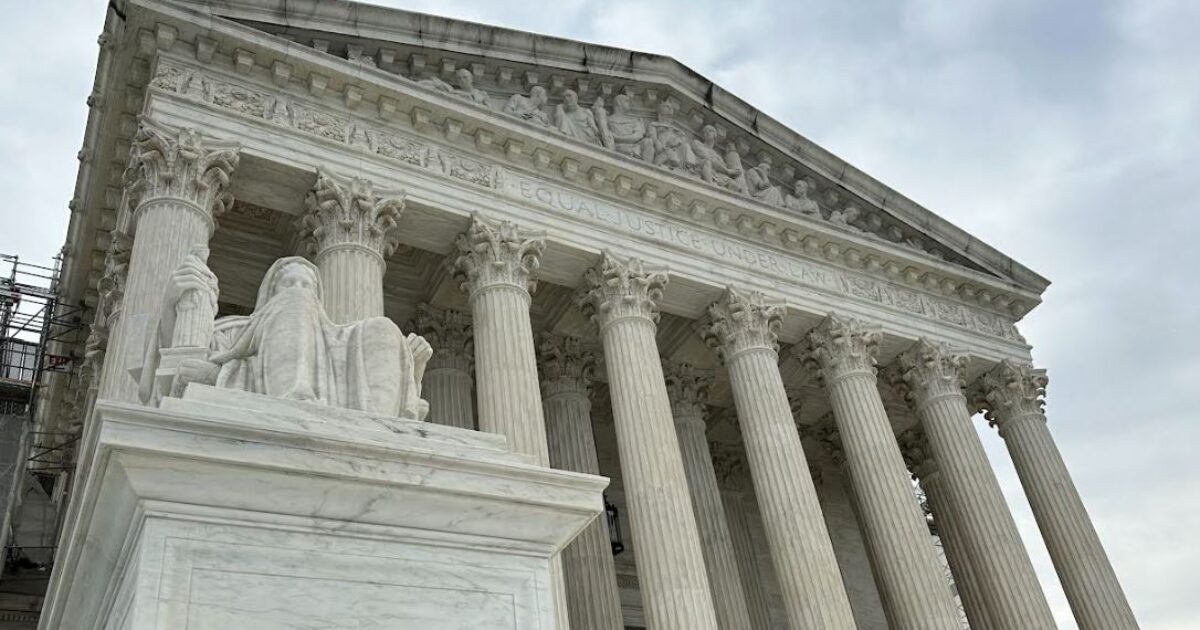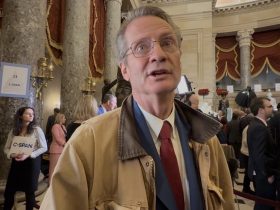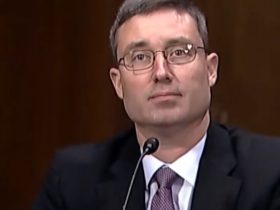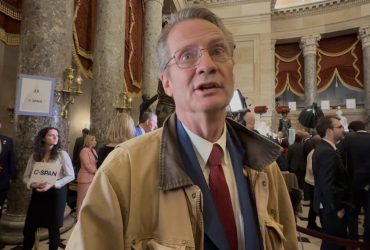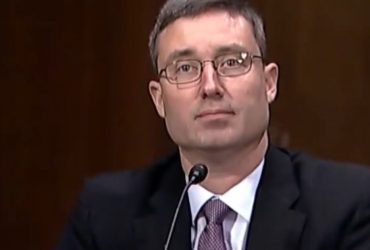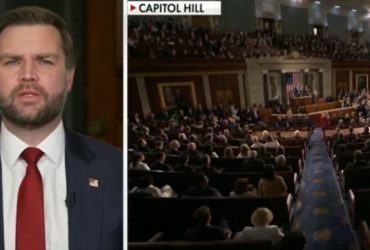The US Supreme Court on Monday rejected a bid to overturn its decision that legalized same-sex marriage.
For the first time since 2015, the US Supreme Court was asked to overturn a landmark ruling on same-sex marriage over the summer.
The Supreme Court agreed to take up the case.
Kim Davis, the Christian Kentucky clerk who went to jail for refusing to issue a same-sex marriage license in 2015, filed the petition and argued the high court’s decision in Obergefell v Hodges was “egregiously wrong.”
On Monday, the Supreme Court rejected Davis’ bid to overturn Obergefell v Hodges without comment.
The AP reported:
The Supreme Court on Monday rejected a call to overturn its landmark decision that legalized same-sex marriage nationwide.
The justices, without comment, turned away an appeal from Kim Davis, the former Kentucky court clerk who refused to issue marriage licenses to same-sex couples after the high court’s 2015 ruling in Obergefell v. Hodges.
Davis had been trying to get the court to overturn a lower-court order for her to pay $360,000 in damages and attorney’s fees to a couple denied a marriage license.
Her lawyers repeatedly invoked the words of Justice Clarence Thomas, who alone among the nine justices has called for erasing the same-sex marriage ruling.
Thomas was among four dissenting justices in 2015. Chief Justice John Roberts and Justice Samuel Alito are the other dissenters who are on the court today.
Recall that the late great Justice Scalia dissented to the Supreme Court’s decision on gay marriage in 2015 and called the ruling a threat to American democracy.
I write separately to call attention to this Court’s threat to American democracy. The substance of today’s decree is not of immense personal importance to me.
The law can recognize as marriage whatever sexual attachments and living arrangements it wishes, and can accord them favorable civil consequences, from tax treatment to rights of inheritance. 2 OBERGEFELL v. HODGES SCALIA, J., dissenting Those civil consequences—and the public approval that conferring the name of marriage evidences—can perhaps have adverse social effects, but no more adverse than the effects of many other controversial laws. So it is not of special importance to me what the law says about marriage. It is of overwhelming importance, however, who it is that rules me. Today’s decree says that my Ruler, and the Ruler of 320 million Americans coast-to-coast, is a majority of the nine lawyers on the Supreme Court. The opinion in these cases is the furthest extension in fact— and the furthest extension one can even imagine—of the Court’s claimed power to create “liberties” that the Constitution and its Amendments neglect to mention. This practice of constitutional revision by an unelected committee of nine, always accompanied (as it is today) by extravagant praise of liberty, robs the People of the most important liberty they asserted in the Declaration of Independence and won in the Revolution of 1776: the freedom to govern themselves.
Until the courts put a stop to it, public debate over same-sex marriage displayed American democracy at its best. Individuals on both sides of the issue passionately, but respectfully, attempted to persuade their fellow citizens to accept their views. Americans considered the arguments and put the question to a vote. The electorates of 11 States, either directly or through their representatives, chose to expand the traditional definition of marriage. Many more decided not to.1 Win or lose, advocates for both sides continued pressing their cases, secure in the knowledge that an electoral loss can be negated by a later electoral win. That is exactly how our system of govern- —————— 1Brief for Respondents in No. 14–571, p. 14. Cite as: 576 U. S. ____ (2015) 3 SCALIA, J., dissenting ment is supposed to work. 2
The Constitution places some constraints on self-rule— constraints adopted by the People themselves when they ratified the Constitution and its Amendments. Forbidden are laws “impairing the Obligation of Contracts,”3 denying “Full Faith and Credit” to the “public Acts” of other States,4 prohibiting the free exercise of religion,5 abridging the freedom of speech,6 infringing the right to keep and bear arms,7 authorizing unreasonable searches and seizures,8 and so forth. Aside from these limitations, those powers “reserved to the States respectively, or to the people”9 can be exercised as the States or the People desire. These cases ask us to decide whether the Fourteenth Amendment contains a limitation that requires the States to license and recognize marriages between two people of the same sex. Does it remove that issue from the political process?
Of course not. It would be surprising to find a prescription regarding marriage in the Federal Constitution since, as the author of today’s opinion reminded us only two years ago (in an opinion joined by the same Justices who join him today)
The post BREAKING: Supreme Court Rejects Bid to Overturn Decision That Legalized Same-Sex Marriage appeared first on The Gateway Pundit.

